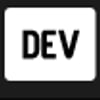As developers, we all strive to write code that is not only functional but also clean, readable, and maintainable. Writing clean code is an essential skill that separates good developers from great ones. Clean code is like a well-organized book - easy to read, easy to understand, and a joy to work with. Here are some best practices to help you become a master at writing clean code.
1. Follow Naming Conventions
Imagine reading a story where characters are named A, B, and C. Confusing, right? The same goes for code. Use meaningful, descriptive names for variables, functions, and classes. Instead of x, use customerName or orderID. Clear names make your code self-explanatory and save you from future headaches.
2. Keep Functions Small and Focused
Think of functions as building blocks. Each one should do one thing and do it well. Large, monolithic functions are like multi-tools - they can do many things but none of them perfectly. Break down complex tasks into smaller, more focused functions. This makes your code easier to read, test, and maintain.
3. Write Self-Documenting Code
Your code should be a story that tells itself. While comments are useful, rely on them sparingly. Instead, write code that is so clear it barely needs comments. When comments are necessary, use them to explain the "why," not the "what." This keeps your code clean and your intent clear.
4. Consistent Indentation and Formatting
Consistency is key. Just like a well-formatted book, your code should follow a consistent style guide. Whether it's spaces versus tabs or the placement of braces, consistency enhances readability. Most modern IDEs and code editors can help you automate formatting, so take advantage of these tools.
5. Use Error Handling
Good error handling is like a safety net for your code. Anticipate potential errors and handle them gracefully. Avoid generic error messages; instead, provide specific, informative messages that help identify and resolve issues quickly. Implement try-catch blocks and validate inputs to prevent unexpected behavior.
6. Refactor Regularly
Refactoring is like spring cleaning for your code. Regularly restructuring your code without changing its external behavior keeps it clean and efficient. Look for code smells, such as duplicate code or long methods, and refactor them to improve code quality and maintainability.
7. Write Unit Tests
Unit tests are your first line of defense against bugs. They verify that individual parts of your code work as intended. Writing tests helps you catch bugs early and ensures your codebase remains robust. Aim for high test coverage and use testing frameworks relevant to your programming language.
8. Avoid Global Variables
Global variables are like the bad apples that spoil the barrel. They can be accessed and modified from anywhere in the codebase, leading to unexpected side effects. Instead, use local variables and pass parameters to functions. This keeps your code modular and predictable.
9. Adopt SOLID Principles
SOLID principles are your roadmap to clean, maintainable, and scalable code. These guidelines promote good object-oriented design:
- Single Responsibility Principle: A class should have one, and only one, reason to change.
- Open/Closed Principle: Software entities should be open for extension but closed for modification.
- Liskov Substitution Principle: Subtypes must be substitutable for their base types.
- Interface Segregation Principle: No client should be forced to depend on methods it does not use.
- Dependency In
10. Seek Feedback and Continuously Improve
Feedback is the breakfast of champions. Code reviews are an excellent way to receive constructive criticism and improve your code. Foster a culture of open, constructive feedback within your team. Learn from your mistakes, stay updated with best practices, and continuously strive to enhance your coding skills.
By following these best practices, you can elevate your code from functional to fantastic. Clean code not only makes your life easier but also benefits your team and future developers who may work on your codebase. Happy coding!







Top comments (0)